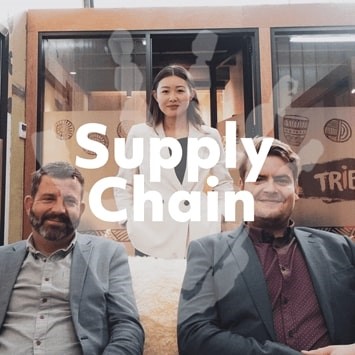A big welcome back to everyone from the Supply Chain, Procurement and Operations team.
It was almost as if things were back to normal in our small corner of the world. Soon after October had begun we were in Level 1 and all was well - back in the office with all the buzz and camaraderie that brings but with the new added benefit of being able to work from home with ease.
![]()
The general feeling is that this will be another challenging year, but a common theme is that New Zealand can function effectively on a predominantly domestic economy and hopefully, business confidence and job creation should continue to increase.
Stats from Tribe
- Supply Chain, Procurement and Ops team revenue Q4 2020 was very similar compared to Q4 2019, which meant after losing 80% of our revenue in April 2020 during lockdown we were pretty much back to pre-COVID revenue levels by the end of the year.
- Job numbers increased by 65% between Q3 and Q4 in 2020 (July – Dec), which means businesses were feeling more confident about recruiting and adding additional headcount.
- Candidate applications decreased by 35% between Q3 and Q4 last year, which means fewer redundancies and more candidates looking for job security and wanting to see out the year with their existing employers after what was a very unsettled year.
Our team has felt the market heat up since earlier in the year when the lockdown seemed to go on and on, showing us some interesting results and trends.
Clients
There seems to be more appetite to grow teams and capability as the global supply chain continues to be challenged by COVID-19, whose tentacles are strangling supply chains the world over and causing issues rarely seen before. This is new ground for many businesses who have for years relied on cheaper alternatives from overseas being so readily available. New ways of working and thinking will be needed and that can be when new people are needed too. Of course, the number of candidates from overseas has dwindled to a trickle, which adds to the shortage of suitable candidates. This adds to the need to be actively looking at your team - the talent needed today and tomorrow - and how finding new people takes a specialist approach. A candidate’s impression of a business will be heavily influenced by their discussions and interactions with a recruiter (be that agency or internal). When choosing a recruitment partner, clients should look for empathy, an accommodating approach and an understanding of what candidates are going through during these unprecedented times.
Candidates
I am pretty sure the return to normality looms large in our hopes for 2021—but it is not quite here yet. I am no economic expert, but I suspect the pandemic will have lasting effects for many years to come (not all bad) and the hiring landscape may still be constrained. There will undoubtedly be more competition amongst candidates, given the unemployment rate rise and companies will be wary of the road ahead.
Having said that, companies ARE hiring and more candidates are looking to move for a new opportunity when the opportunity presents itself. Last year many candidates adopted a “no thanks” attitude to being approached for a new role, but the last few months have seen more candidates open to a discussion.
Companies have experimented with video interviewing in the past, but COVID-19 means we have had to create an end-to-end virtual recruiting process for the first time. Candidates will have to get used to this manner of interviewing as it is probably here to stay. I suspect we will not go back to having everything fully in person again, but rather a mixture of virtual and in-person.
Other news
- Increased shipping costs are causing massive supply chain challenges for NZ businesses. Such increases make much exporting and importing activity completely uneconomic. Exactly the same issues and pressures as reported for New Zealand firms.
- Businesses continue to promote flexibility and working from home with Unilever NZ leading the charge in this area by trialling the four-day working week for the next 12 months
- Recruitment freezes and recruitment bans have been reduced.





